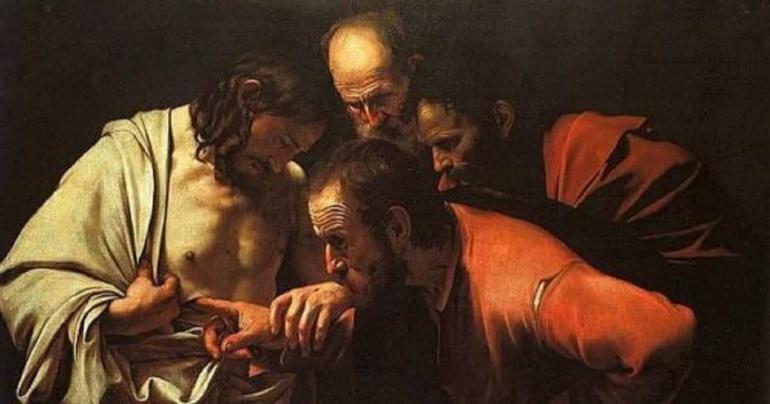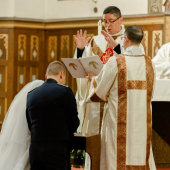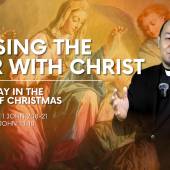Rejoicing in the Blessings Given to Others

“Put your finger here and see my hands, and bring your hand and put it into my side, and do not be unbelieving, but believe.” Thomas answered and said to him, “My Lord and my God!” Jesus said to him, “Have you come to believe because you have seen me? Blessed are those who have not seen and have believed.” John 20:27–29
Thomas the Apostle, in many ways, represents each and every one of us in this exchange with Jesus. We’d like to believe that we always believe and are not unbelieving. But it’s important to admit the humble truth that we may not believe as deeply as we should. And it’s important to reflect upon our own reaction to the blessings that others receive that we do not.
Recall that Thomas was not among the other Apostles when Jesus first appeared to them. Therefore, when Thomas returned and heard that Jesus had appeared and that he missed His appearance, he clearly felt bad. Unfortunately, the sorrow Thomas felt at not being present when the Lord appeared to the others left him with a certain bitterness rather than joy. This is the sin of envy. Envy is a certain sorrow over the blessings others receive that we do not. Ideally, Thomas would have rejoiced at the blessing that the other Apostles received by encountering the risen Lord. But, instead, his sorrow at missing this even left him sad. He said, “Unless I see the mark of the nails in his hands and put my finger into the nail marks and put my hand into his side, I will not believe.”
Why was Thomas absent from this encounter with our Lord? Perhaps it was by divine providence, in that God wanted Thomas to set for us an example. If so, then one example Thomas set was that we must humbly rejoice in the blessings others receive when we are not also the recipient. Of course, if Thomas were there, then it would have been easier for him to share in the joy. But, in many ways, Thomas’ absence provided him an even greater opportunity. An opportunity that he failed to embrace.
When you see others receive blessings from God, how do you respond? Many people respond by immediately looking at themselves, wishing they were blessed in the same way. They struggle with envy. They think, “I wish I had received that blessing.” This form of envy is not always easy to see. For that reason, Thomas is given to us as a witness of what not to do in this situation.
Of course, Thomas is not a horrible person, which is why Jesus does later appear to him. That time, Thomas spoke words that are traditionally spoken as a devotion by the faithful at Mass when the Consecration occurs. He said, “My Lord and my God!” Jesus then gently rebukes Thomas by saying, “Have you come to believe because you have seen me? Blessed are those who have not seen and have believed.” But this gentle rebuke was an act of love, in that Jesus wanted Thomas to ponder the reason for his unbelief. Jesus clearly wanted Thomas to examine the unbelief caused by envy, which appears to have led to an intentional lack of faith.
Reflect, today, upon this holy Apostle. Today, Saint Thomas the Apostle is among the great saints in the Kingdom of Heaven. God used him to teach us these important lessons about envy, humility and faith. Let his weakness, from which he fully recovered, help you examine your own struggle with envy over the blessings that others receive that you do not. Learn to rejoice always in the ways that God is at work in our world and learn to grow in humility, so that when others are blessed in ways that you are not, you react as Saint Thomas ultimately did: “My Lord and my God!”
My most generous Lord, You pour forth Your blessings upon others, day and night. As I see those blessings, help me to overcome all temptations toward envy so that I may rejoice in Your grace given to all. You are my Lord and my God, and I thank You for every way that You bless my life and the lives of those around me. Fill me with a deeper gratitude, dear Lord, for every grace and blessing I see every day, especially those graces not given directly to me. Jesus, I trust in You.
Radio Veritas Asia (RVA), a media platform of the Catholic Church, aims to share Christ. RVA started in 1969 as a continental Catholic radio station to serve Asian countries in their respective local language, thus earning the tag “the Voice of Asian Christianity.” Responding to the emerging context, RVA embraced media platforms to connect with the global Asian audience via its 21 language websites and various social media platforms.














